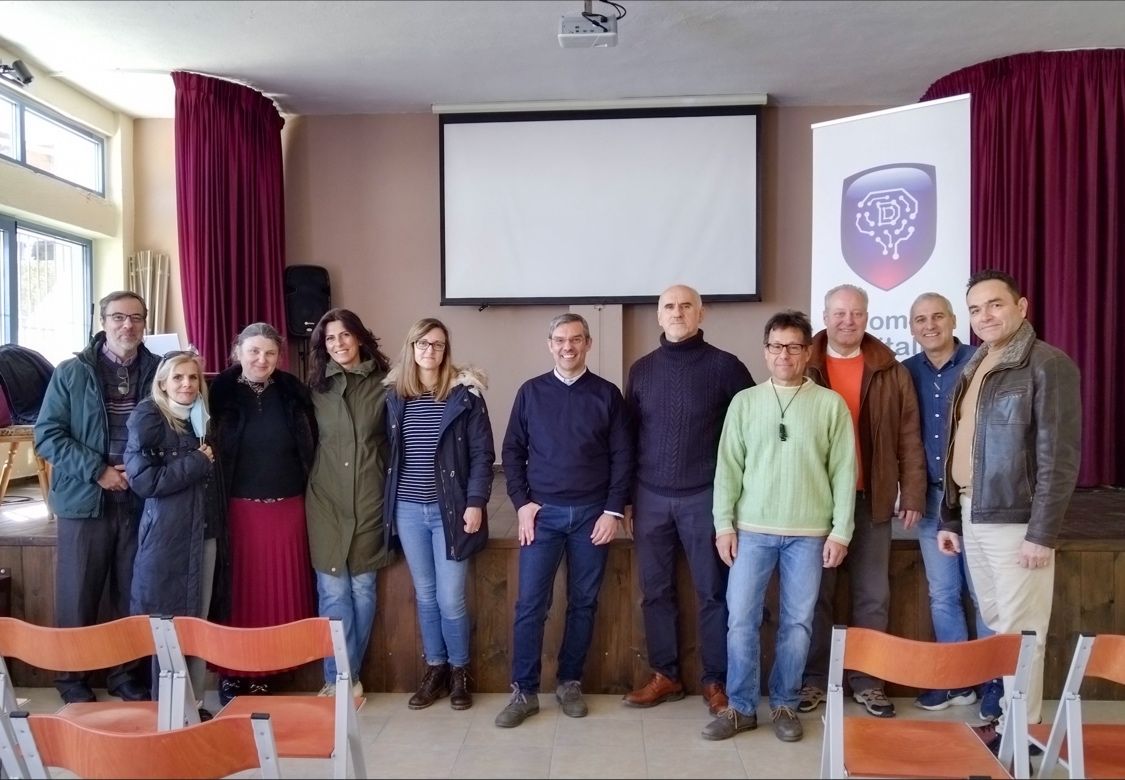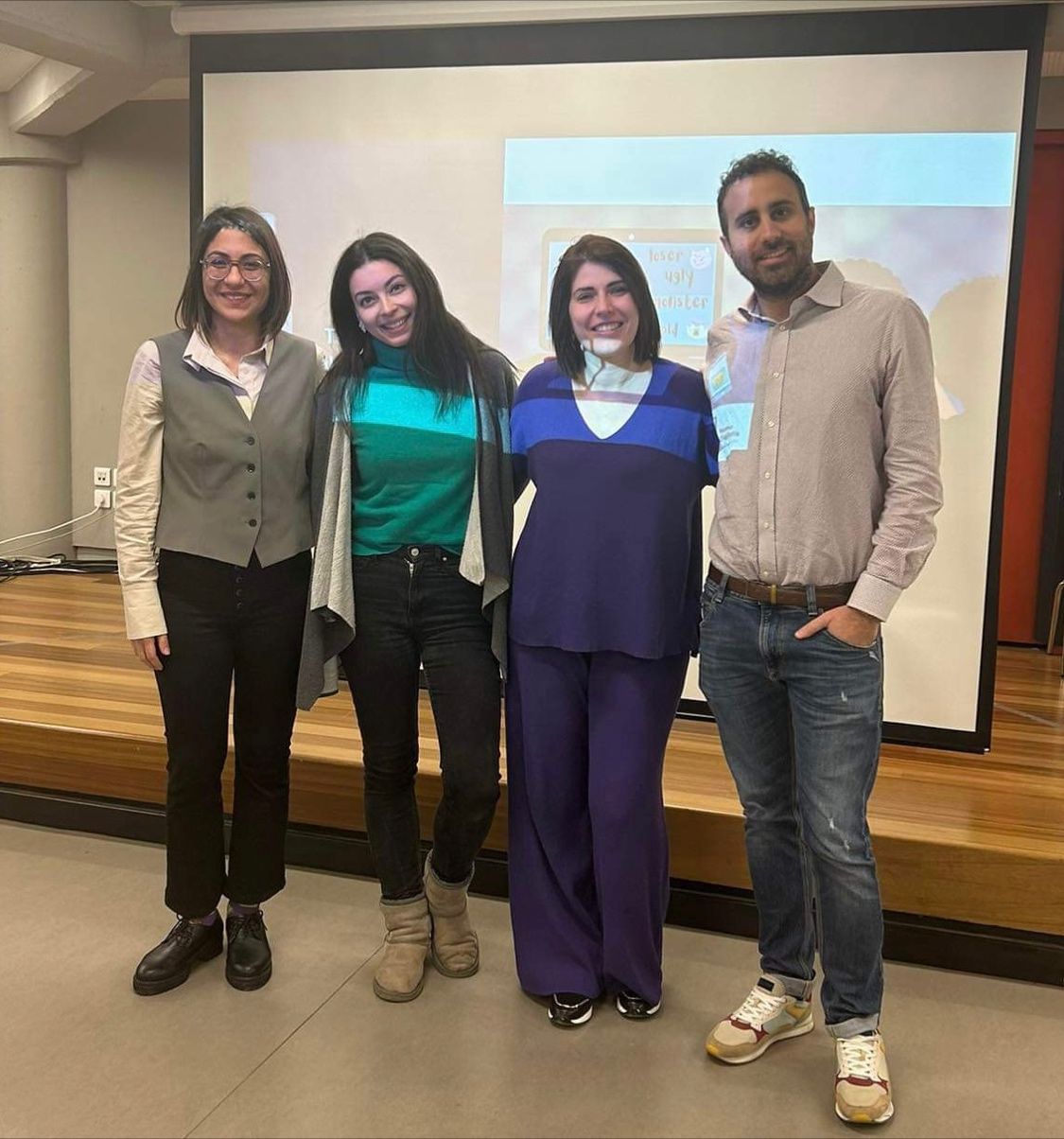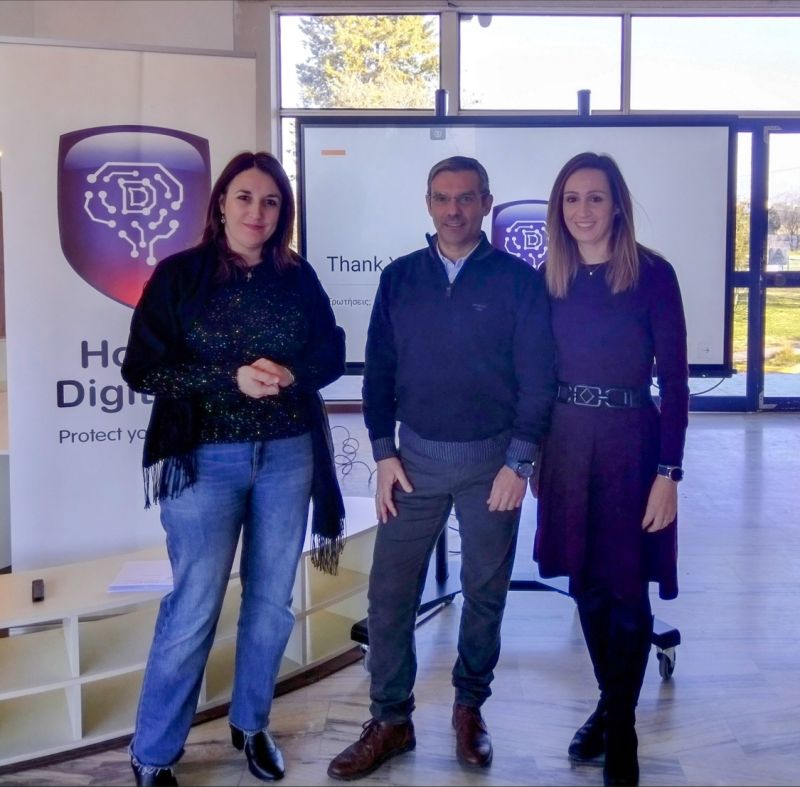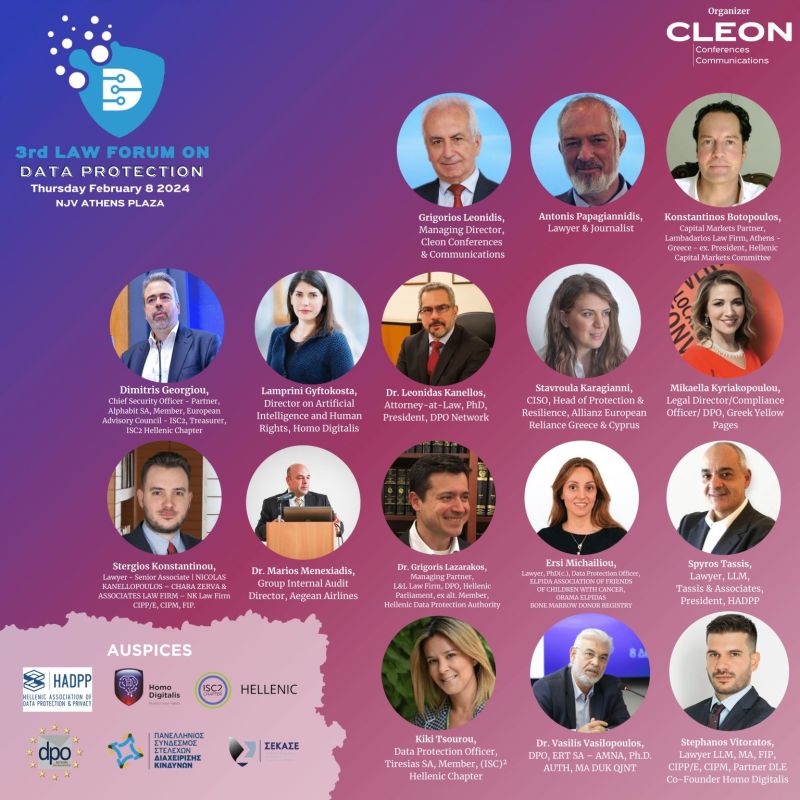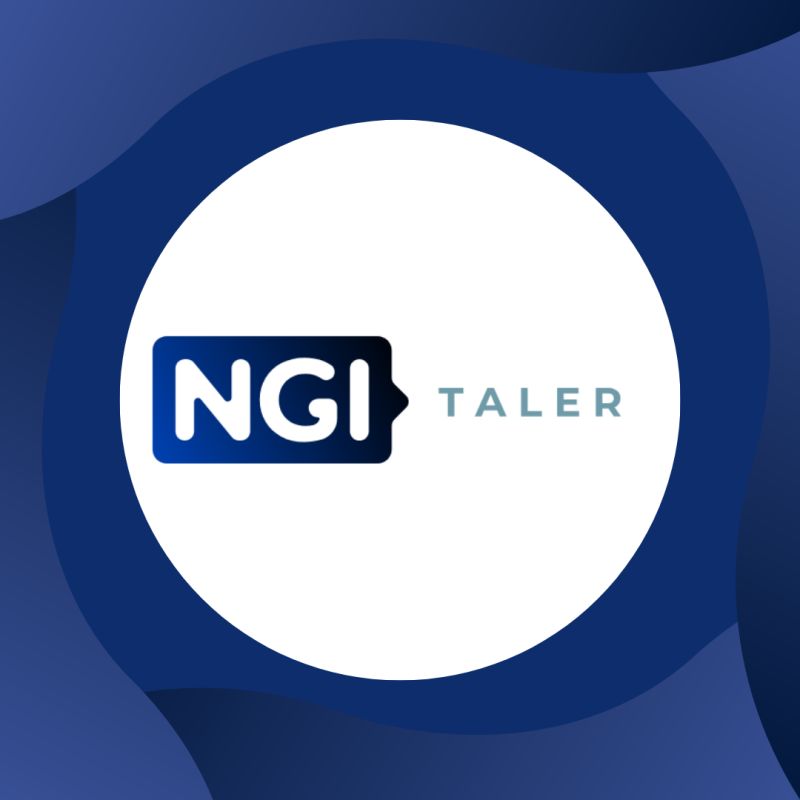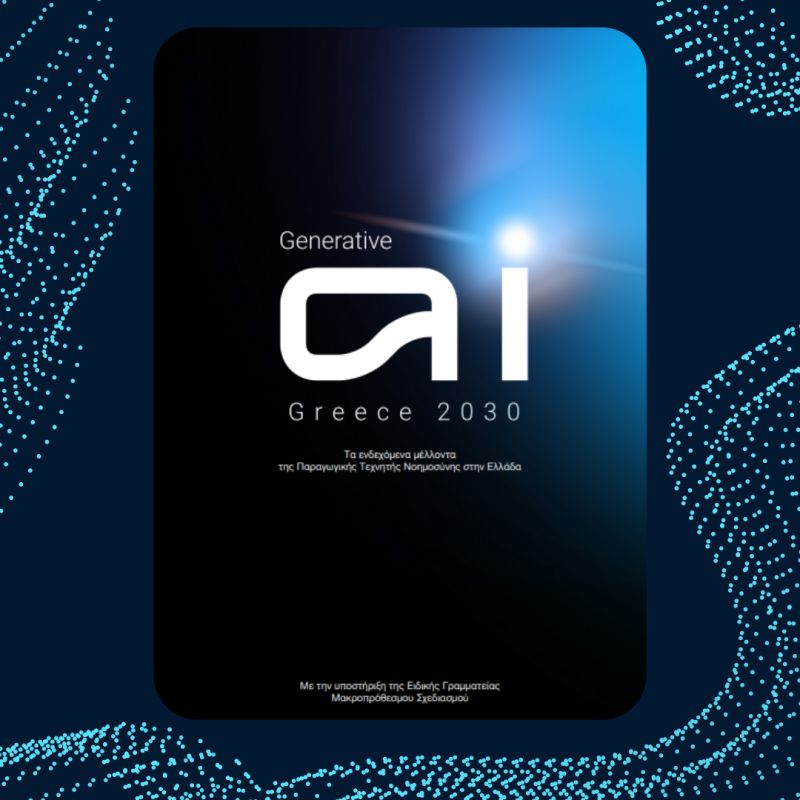Homo Digitalis speaks about the Safer Internet Day 2024 at Pyrgettos Gymnasium and Lyceum
Part A’
Today is Safer Internet Day and Homo Digitalis was once again in many different schools in Greece, completely voluntarily, to talk to students and teachers about our digital rights with the presentations “digital footprint” and “cyberbullying”.
Homo Digitalis and our member Anastasios Arabatzis visited Pyrgettos High School and Lyceum and we were surprised by the active participation and interest of the public in our activities.
Homo Digitalis talks about Safer Internet Day 2024 at the Hellenic American Educational Foundation Athens College - Psychico College Primary School.
Part B’
Today is Safer Internet Day and Homo Digitalis was once again in many different schools in Greece, completely voluntarily, to talk to students and teachers about our digital rights with the presentations “digital footprint” and “cyberbullying”.
Homo Digitalis and our members Kostas Kakavoulis, Lamprini Gyftokosta, Nikoleta Georgakopoulou and Ariana Rapti visited the elementary school of the Hellenic American Educational Foundation Athens College – Psychico College.
Our participation in the Privacy Camp in Brussels for another year
Last week we attended the Privacy Camp in Brussels, one of the most important annual meetings in the field of digital rights internationally, organized by European Digital Rights in collaboration with the Research Group on Law, Science, Technology & Society (LSTS) at the Vrije Universiteit Brussel (VUB), Privacy Salon, Institute for European Studies, ULB (IEE-ULB), Institute for Information Law (IViR) at UvA and the Racism and Technology Center!
There we had the pleasure to meet with EDRi network organisations and other civil society representatives, European institutions, academic institutions and other partners!
Homo Digitalis was represented at the meeting by our President, Elpida Vamvaka, and there we met with many of our members who participated in the meeting, including Alexandra Giannopoulou and Emilia Givropoulou.
We are organising a workshop for an innovative digital identity wallet in the framework of the PRIVÉ project
Homo Digitalis is a proud partner of the PRIVÉ project!
On 13 February at 18.00, we will host a workshop to present the solution developed within the project and have it evaluated by privacy-conscious end-users:
The EUDI wallet will revolutionise the way digital identity is handled in Europe. But how do we achieve widespread user adoption? Are privacy and trust important factors and are they sufficiently taken into account in the current EUDI architecture?
In response to these pressing questions, the PRIVÉ project is pleased to announce a webinar (hybrid) on 13 February 2024. This event will present an innovative solution for digital identity wallets that not only emphasizes strong privacy mechanisms, but also features seamless integration with the eIDAS and GDPR frameworks, setting a new benchmark for digital identity solutions.
13.02.2024, 18:00 Athens time
Three parallel sessions simultaneously:
-Athens.
-HERAKLEIO: at Bizrupt, Vikelas 34-36.
-Online session via Zoom
This webinar offers a unique, hands-on experience with PRIVÉ Wallet, inviting participants to engage directly with the technology through a real-life implementation scenario. We invite you to be part of its evolution. Your feedback on the usability of the wallet and your insights into the factors influencing the adoption of EUDI wallets by European citizens will be invaluable.
Join us in shaping the future of digital identity in Europe – a future where your identity is secure, your privacy is respected and your trust is earned.
You can learn more and register here.
Pro bono Educational Presentation at the Karavanas School in Larissa
Homo Digitalis continues its informative talks in schools pro bono!
Yesterday Anastasios Arampatzis spoke at the Karavanas School in Larissa on the topic of Digital Footprint. The speech was attended by 60 high school students.
We would like to thank the Director of the High School, Mrs. Lena Papakostouli, as well as Mrs. Zoe Goundela, the school’s IT teacher, who presented with us.
It was an excellent experience, with the active participation of the students, who deserve a big thumbs up!
Privacy Day is not a day of wishes, but a day of responsibility!
28 January is the international day dedicated to the protection of personal data!
Since March 2018, and for almost 6 years now, Homo Digitalis has carried out important actions for the protection of personal data in all 3 pillars of its action, those of awareness-raising, policy-making and legal actions.
At our celebratory event last month, we spent about 2 hours talking about all our successes. For today, we prepared a short video of a few seconds to present some highlights of these successes. Because today is not a day of wishes, but a day of responsibility! You can watch our short video https://www.linkedin.com/feed/update/urn:li:activity:7157389006190608384here.
Participation of Homo Digitalis in the 3rd LAW FORUM ON DATA PROTECTION
We are pleased to announce that two representatives of Homo Digitalis will speak at the 3rd LAW FORUM ON DATA PROTECTION, organized by CLEON Conferences & Communications on Thursday 8/2/2024 in Athens!
Our Director of Human Rights & Artificial Intelligence, Lambrini Gyftokosta, and our Vice President of the Board of Directors, Stefanos Vitoratos, will participate in the panel discussions and talk to the other speakers and the audience!
We are honored that for the third consecutive year, the conference is held under the auspices of Homo Digitalis and other major players in the field, such as the Hellenic Association of Data Protection and Privacy , ISC2 Hellenic Chapter, PA.SY.S.DI.K. HARIMA, Association of Compliance Officers in Greece – ASCO Greece and DPO Network.
More information can be found on the organizer’s website here.
Homo Digitalis participates in EU project to promote next generation private and secure electronic payments
A new electronic payment system that is socially, ecologically and fiscally responsible, to make payments easy for all of us. This is the aim of the Next Generation Internet pilot project called NGI TALER.
The NGI TALER consortium is coordinated by the Coding Theory and Cryptology Group at the Eindhoven University of Technology and has ten other partners from eight European countries (Belgium, France, Germany, Greece, Hungary, Luxembourg, the Netherlands, France, Germany, Greece, Luxembourg, Switzerland and the Netherlands). The consortium varies in the types of institutions, including research (Eindhoven University of Technology) and applied universities (Berner Fachhochschule BFH), small for-profit companies (Code Blau GmbH, Taler Systems S.A., VisualVest), one-structure (petites singularités), cooperative banks (GLS Bank, MagNet Bank), one foundation (Stichting NLnet) and civil society organisations (E-Seniors Association, Homo Digitalis).
The GNU Taler payment solution differs from current online payment methods, such as credit cards or bank transfers, as it offers privacy for the buyer: neither merchants (payees) nor banks can track or link payments to the consumer. This makes the system similar to cash for the consumer, bringing this level of privacy to electronic payments.
It is also a risk-free payment option for the merchant, as there is no equivalent to counterfeit or stolen credit cards, as payments are cleared and confirmed immediately like cash. No new currency is involved, there is no energy-intensive proof-of-work or proof-of-stake method, and payment approval is processed even faster than with credit cards. The European NGI TALER program enforces transparency on the part of the payee , allowing governments to hold businesses accountable for their income and tax obligations.
NGI TALER is funded as a pilot project under the Next Generation Internet (NGI) initiative under the European Commission’s Horizon Europe research funding programme and will run until 2026. This project is based on the free GNU Taler software, which has been developed by the GNU community and Taler Systems S.A., and which has been widely endorsed by economic experts, including experts from several central banks – including the Swiss National Bank (SNB).
The aim of the project is to make the GNU Taler available as a payment system through two European banks – GLS Bank (Germany) and MagNet Bank (Hungary). The ambition of NGI TALER is to reach the European market during the project period and to have the payment mechanism accepted and widely adopted by the end of the project.
Under the hood, GNU Taler uses state-of-the-art cryptography to achieve these features. The initial investment in the required infrastructure is low and the payment mechanism operates more efficiently than existing payment solutions, with lower transaction costs – a benefit that will be shared by consumers, merchants and banks. This makes it a viable candidate for micropayments, creating an interesting and privacy-friendly alternative to subscription or advertising-based revenues for newspapers and other publishers.
For more information visit the project website here.
Participation of Homo Digitalis in the EKKE and Democritοs Study on the use of Productive Artificial Intelligence in Greece
The Special Secretariat of Foresight, Hellenic Republic (Special Secretariat of Foresight, Hellenic Republic), in cooperation with the National Centre for Social Research (EKKE) and the National Centre for Scientific Research “Demokritos” (EKKE “D” National Center for Scientific Research “Demokritos”) implemented the first empirical research approach of strategic foresight for the use of Generative Artificial Intelligence (GIA) in Greece.
The research presents trends, opportunities, challenges, uncertainties and possible options that will shape the future of the country’s AI ecosystem. It provides a framework for proposed strategic initiatives and policy recommendations. Its main objective is to draw on the collective knowledge and foresight of experts and practitioners regarding the impact of the domestic Productive Artificial Intelligence (PI) ecosystem, with a time horizon of 2030.
It is a great honour for the Homo Digitalis team to be selected to be among the 30 experts who participated in the interviews using questionnaires for the preparation of the survey. The experts represented various stakeholders (public administration, research-academic community, business-private sector, civil society, professional and scientific bodies) and are systematically involved in the WTN. Our team was represented with remarks by our Board Secretary Lefteris Chelioudakis.
We would like to thank Dr. Charalambos Tsekeris, Head of the Research Project “GenAI Greece 2030”, Vice-Chairman of the National Bioethics and Technology Ethics Committee and Principal Researcher of the ESRC for the inclusion and the honorary challenge to Homo Digitalis to participate. Our organization is always available to give presence to similar initiatives and to actively participate in the public debate on the use of AI technologies.
You can read the full study here.
